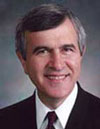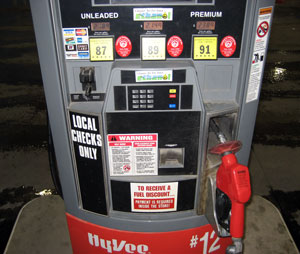 Underwriters Laboratories and the U.S. Department of Energy are holding two days of hearings this week at the testing group’s headquarters outside Chicago, inviting oil companies, automakers and researchers to help develop standards for E85 equipment.
Underwriters Laboratories and the U.S. Department of Energy are holding two days of hearings this week at the testing group’s headquarters outside Chicago, inviting oil companies, automakers and researchers to help develop standards for E85 equipment.
The National Ethanol Vehicle Association is “confident” that the meeting will address E85 pump safety concerns that first surfaced in an October 5 memo from Underwriters Laboratory.
According to a press release from NEVC, UL has issued a follow up document “that should serve to assuage most concerns that have been voiced by local Fire Marshals and others with jurisdiction.”
Phil Lampert, Executive Director of the NEVC said, “We have personally met with the Director of Government Affairs for UL and have had daily conversations with senior UL management. We believe that much of the current confusion has been addressed with the subsequent UL E85 update announcements. Our management and staff are working very closely with UL officials and will be attending a technical meeting to discuss this matter. We are confident that UL is aggressively addressing this matter and are working with them to establish proper certification standards.”



 Another Nebraska ethanol plant officially started construction with groundbreaking on Friday in Carleton.
Another Nebraska ethanol plant officially started construction with groundbreaking on Friday in Carleton. In its quest to make cellulosic ethanol an affordable reality in the near future,
In its quest to make cellulosic ethanol an affordable reality in the near future, 
 MIT researchers are working on a smaller gasoline engine that could get better fuel economy by injecting ethanol when a performance boost is needed.
MIT researchers are working on a smaller gasoline engine that could get better fuel economy by injecting ethanol when a performance boost is needed.  The
The 
 The US Secretaries of Energy and Agriculture each talked about the need for cellulosic ethanol in two different venues this week.
The US Secretaries of Energy and Agriculture each talked about the need for cellulosic ethanol in two different venues this week. Hello from Iowa. I’m not up here for anything related to renewable fuels but when you’re a blogger you see things of interest everywhere.
Hello from Iowa. I’m not up here for anything related to renewable fuels but when you’re a blogger you see things of interest everywhere. Ethanol is pretty much a daily topic of discussion on the
Ethanol is pretty much a daily topic of discussion on the  The state of Nebraska is receiving $38 million from the USDA Rural Development agency for renewable energy and conservation, with most of the money to be used for an ethanol plant in McCook.
The state of Nebraska is receiving $38 million from the USDA Rural Development agency for renewable energy and conservation, with most of the money to be used for an ethanol plant in McCook.